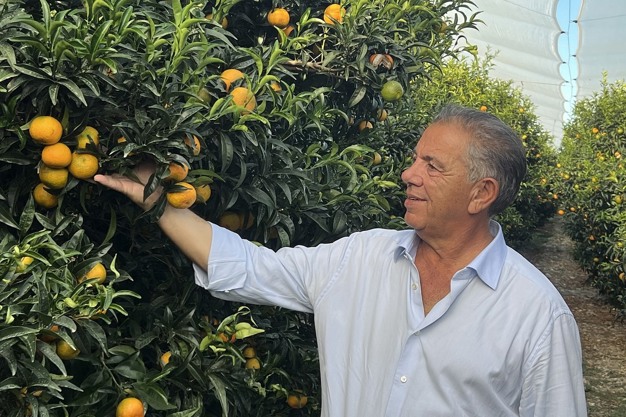For the producer organisation Agricor based in Corigliano Rossano (Cosenza), the clementine campaign started in early October: the early varieties are now finished, and the varietal changeover in favour of Spinoso and Comune clementines is now being managed to face the peak of the season.
The volumes of Comune clementines, which have found an ideal growing area in the Sibari Plain, are however still lacking and, more generally, they are expected to drop. "We are experiencing a dry season and we continue to irrigate our citrus groves. In addition, we are still missing the temperature swings typical of the period and, at night, we record warm temperatures of around 16-17 °C. These factors affect the ripening of fruits and their colouring: we are a bit behind schedule and quantities are still limited. The plants are not very loaded, so the incidence of production costs is higher, and the only advantage is the sweetness of the fruits, which are already very well developed. On a production level, we expect to have more medium-sized ones while, this year, it will be difficult to have larger ones."

Natalino Gallo, president of Op Agricor
The harvesting of the early varieties has now come to an end. The hope is that, with the Common and Spinoso varieties, the clementine campaign can recover in terms of volumes. Op Agricor expects operations to peak between 7 and 10 November, while deliveries and the marketing of the PGI produce will also this weekend. "We have reached the desired characteristics for the marketing of the first volumes of Clementine di Calabria PGI," continued the president. "We waited until the juiciness of the pulp, the aromatic component, the sugar content and the colour were optimal, which is very important for us: clementines with Protected Geographical Indication are a calling card for our company and our entire territory."

"Attention to quality is a crucial factor that we adopt for all our productions: the commercial debut of clementines has been generally positive when it comes to quality, but it risks suffering a negative backlash due to the presence on the market of produce with a too dry pulp and insufficiently developed taste, which could lead to a general lowering of prices."
For more information: www.gallofrutta.net/it
